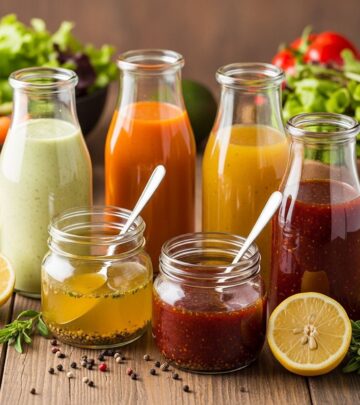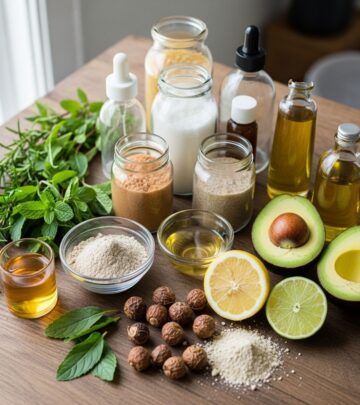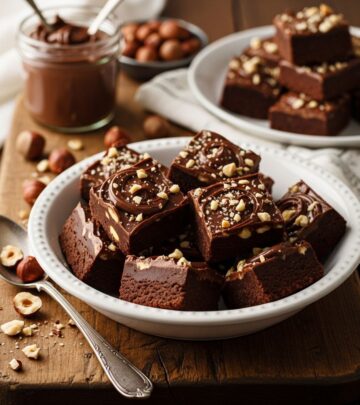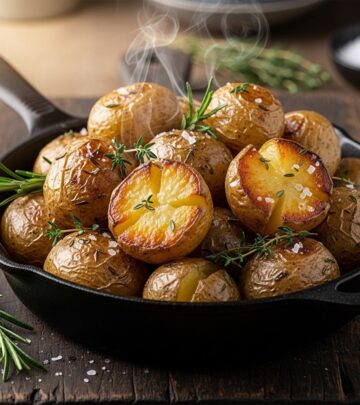How to Make Homemade Marinades: The Complete Guide
Pantry staples can transform everyday meals into vibrant, aromatic dishes.
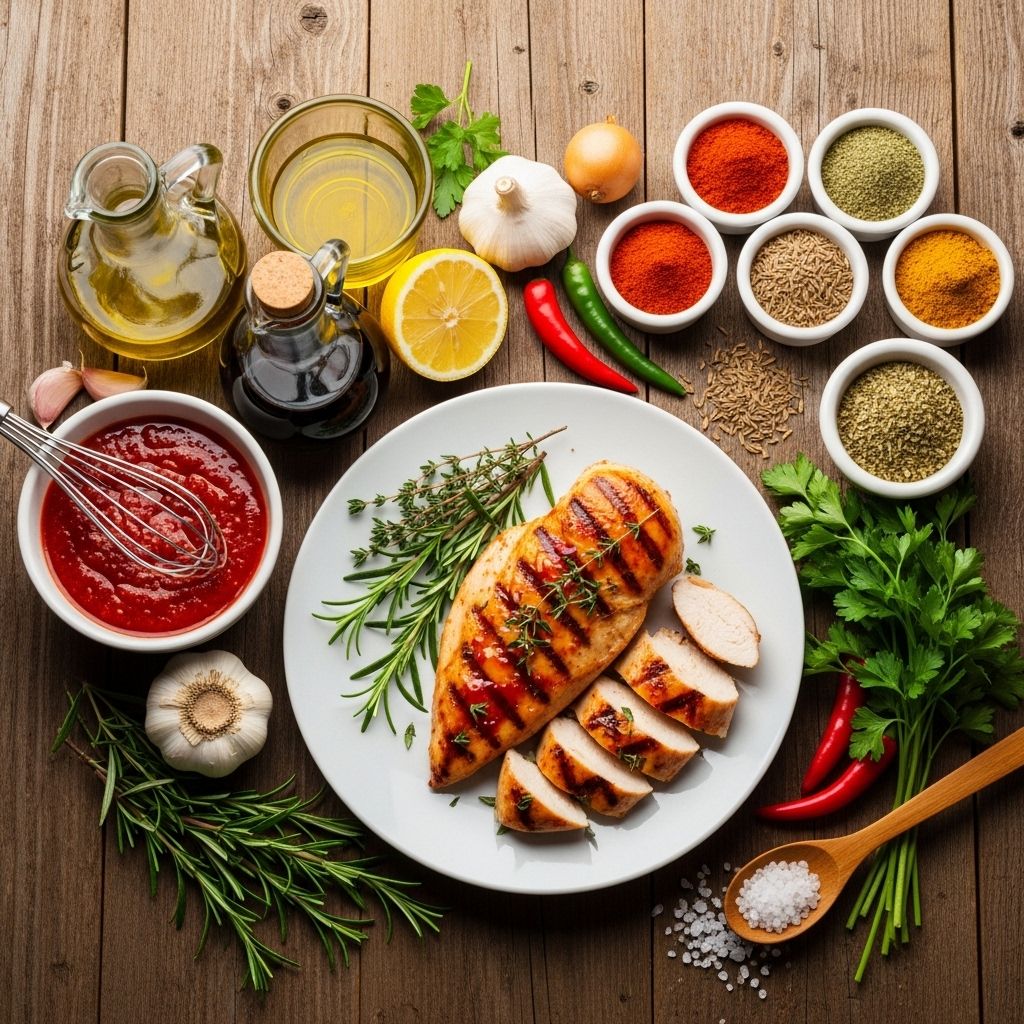
Unlocking big flavors at home starts with mastering the art of the marinade. Whether you’re looking to elevate weeknight dinners or impress at your next cookout, homemade marinades are the secret to tender, juicy, and delicious meats and vegetables. This comprehensive guide breaks down everything you need to know—from creating a basic marinade formula to flavor inspiration for global cuisines, plus expert tips for the best results every time.
Why Make Homemade Marinades?
Homemade marinades let you control flavors, avoid preservatives, and adapt to any dietary preference. You can craft something spicy, sweet, zesty, or herbaceous in minutes using common pantry staples. The possibilities are infinite, giving you the power to transform ordinary ingredients into crowd-pleasing meals.
The Essential Marinade Formula
A great marinade is a harmonious balance of acid, oil, seasonings, and salt. Here’s a reliable, flexible formula for marinating around 1.5 to 2 pounds of meat, seafood, or vegetables:
- 1/4 cup acid: Choose from vinegar (rice, apple cider, red wine, balsamic), citrus juice (lemon, lime, orange), or even something unique like yogurt or buttermilk.
- 1/4 cup oil: Opt for a neutral oil (avocado, grapeseed, canola, or vegetable). For flavor, add a touch of olive oil or sesame oil.
- 2–4 tablespoons seasonings/spices: Think minced garlic, fresh ginger, chopped herbs, mustard, chili paste, honey, or maple syrup.
- 1 teaspoon salt: Sea salt, kosher salt, or flavored salts all work well.
Tip: For best results, whisk everything together in a bowl or shake in a jar until well combined.
Understanding Marinade Components
| Component | Role in Marinade | Examples |
|---|---|---|
| Acid | Tenderizes and adds brightness. | Lemon juice, vinegar, lime, yogurt |
| Oil | Locks in moisture; distributes fat-soluble flavors. | Avocado oil, olive oil, sesame oil |
| Salt | Enhances flavor; helps draw flavors into meat. | Kosher salt, sea salt, soy sauce, fish sauce |
| Sugar | Balances acidity; aids caramelization. | Brown sugar, honey, maple syrup, agave |
| Seasonings | Adds flavor complexity. | Garlic, ginger, pepper, herbs, chili paste, mustard |
Popular Homemade Marinades with Recipes
Try these globally-inspired marinades, each perfect for chicken, pork, steak, seafood, or even sturdy vegetables.
1. All-Purpose Asian Marinade
Bursting with ginger, garlic, soy, and a gentle heat, this marinade is incredibly versatile. Use it for chicken, pork, steak, shrimp, or tofu. It’s inspired by beloved Asian flavors and is always a hit!
- 1/4 cup rice vinegar
- 2 tbsp avocado oil (or other heat-safe oil)
- 2 tbsp sesame oil
- 2 tbsp soy sauce (or tamari for gluten-free)
- 2 tsp finely minced garlic
- 2 tsp finely grated ginger
- 1 tsp sea salt
- 1 tsp Asian garlic chili paste (optional for heat)
Directions: Whisk all ingredients together. Marinate meat for 30 minutes (seafood or vegetables), or up to 4 hours (chicken, pork, steak) in the refrigerator. Discard excess marinade before cooking.
2. Simple Thai-Inspired Marinade
For those who love the fresh, vibrant flavors of Thai food, this marinade balances citrus, umami, and just a hint of sweetness.
- 1/4 cup avocado oil (or other heat-safe oil)
- 1/4 cup freshly squeezed lime juice
- 1 tbsp fish sauce
- 1 tbsp minced garlic
- 2 tsp raw sugar
- 2 tsp Asian garlic chili paste
Directions: Combine all ingredients. Use for pork chops, chicken, shrimp, or flank steak. Marinate for as little as 30 minutes or up to 2 hours for optimal flavor.
3. Lemon-Herb Garlic Marinade (French-Inspired)
This vibrant blend highlights the freshness of herbs with bright lemon and tangy Dijon. It’s a classic pairing for grilled chicken, fish, or vegetables.
- 1/4 cup avocado oil (or other heat-safe oil)
- 1/4 cup freshly squeezed lemon juice
- 1 tbsp Dijon mustard
- 1 tbsp dried herb blend (Herbes de Provence, or 3 tbsp chopped fresh thyme, rosemary, parsley, or chives)
- 2 tsp minced garlic
- 1 tsp sea salt
- 1/2 tsp black pepper
Directions: Whisk together. Marinate chicken or vegetables for 1–4 hours. Grill, roast, or bake as desired.
Classic Marinade Recipes for Popular Proteins
In addition to international flavors, these classic foundational marinades can be adapted for your favorite proteins:
Grilled Chicken Marinade
- 1/2 cup extra-virgin olive oil
- 1/4 cup soy sauce
- 3 garlic cloves, chopped
- 1 tbsp brown sugar
- 2 tbsp lemon juice
- 1 tbsp Dijon mustard
- 1 tsp fresh thyme leaves, chopped
- 1 tsp kosher salt
- 1/2 tsp ground black pepper
Directions: Shake or whisk all ingredients in a mason jar or bowl. Marinate chicken pieces for 30 minutes to 4 hours in the fridge. Grill as desired, discarding used marinade.
Pro Tip: Pat chicken dry before grilling for optimum char and flavor.
Best Steak Marinade
- 1/4 cup balsamic vinegar
- 1/4 cup low-sodium soy sauce
- 2 tbsp packed brown sugar
- 1 tsp Dijon mustard
- 2 garlic cloves, minced
- 1/4 cup olive oil
Directions: Whisk all ingredients, then add steaks. Let marinate for at least 30 minutes (up to 2 hours in the fridge). Wipe excess marinade before cooking for a blushing, flavorful crust.
How to Customize Marinades for Any Meal
Once you master the basic ratios, you can adjust flavors and intensities infinitely using what’s on hand or inspired by your favorite cuisines. Here are a few suggestions:
- Go Mediterranean: Add crushed garlic, oregano, lemon zest, and red wine vinegar.
- Spicy Southwest: Blend lime juice, cumin, chili powder, smoked paprika, and fresh cilantro.
- Indian Flavors: Mix yogurt, garlic, ginger, garam masala, turmeric, and lemon juice for a quick tandoori-style marinade.
- BBQ Twist: Combine ketchup, brown sugar, apple cider vinegar, Worcestershire sauce, garlic, and a habanero or chipotle for heat.
Pro Tips for Marinating Success
- Use a Zip-Top Bag: Seal meat and marinade in a bag, squeezing out excess air for even coverage.
- Don’t Over-Marinate: Acids can make proteins mushy if left too long. Follow the recommended times below:
| Protein | Ideal Marinating Time |
|---|---|
| Chicken (whole pieces) | 1–4 hours |
| Chicken (breasts, cut up) | 30 min – 2 hours |
| Beef & Pork (steaks, chops) | 1–4 hours |
| Seafood (fish, shrimp) | 15–30 minutes |
| Vegetables | 15–30 minutes |
- Always refrigerate while marinating to prevent bacteria growth.
- Discard used marinades or boil if you plan to use it as a sauce, to ensure safety.
- Pat meat dry before cooking for better browning.
- Don’t reuse raw marinade.
Common Marinade Questions (FAQ)
Q: What’s the point of marinating?
A: Marinades infuse flavor and promote tenderness by using acids, salt, and aromatic ingredients to break down the meat’s surface and add depth to the final dish.
Q: Why can’t I marinate meat overnight?
A: Too much acid (vinegar or citrus) can make proteins mushy and break down the texture. Stick with recommended times for best results—especially for seafood and chicken.
Q: Can I cook with used marinade?
A: For safety, never use raw marinade as a sauce unless you boil it for several minutes to kill bacteria.
Q: What can I use instead of oil?
A: Greek yogurt, buttermilk, coconut milk, or even fruit purees (like pineapple) can serve as flavorful alternatives for marinades with less or no oil.
Q: Can I marinate frozen meat?
A: You can, but it’s most effective once the meat has thawed. Marinate as it defrosts in the fridge for the best absorption and food safety.
Smart Marinade Storage & Meal Prep
- Make ahead: Most marinades keep well in the fridge for up to 4 days (just add fresh herbs last minute).
- Batch prep: Double or triple marinades and store in mason jars for speedy weeknight dinners.
- Freezer friendly: Add proteins and marinades to freezer bags and freeze flat. Thaw in the fridge overnight and cook as usual.
Marinate Like a Pro: Additional Tips
- Use glass, ceramic, or food-grade plastic containers for marinating—avoid metals, which can react with acids.
- Score thicker meats: Make shallow cuts to help flavors penetrate more deeply.
- Reserve a tablespoon or two of marinade (before adding raw meat) as a basting sauce or for drizzling before serving for an extra flavor boost.
Get Inspired: Mix & Match Marinade Ideas
- Polynesian: Pineapple juice, soy sauce, garlic, ginger, brown sugar
- Mexican: Lime juice, orange juice, cumin, cilantro, chipotle in adobo
- Indian: Yogurt, lemon juice, coriander, garam masala, garlic
- Greek: Olive oil, lemon, oregano, garlic, rosemary
- Korean BBQ: Soy sauce, brown sugar, garlic, sesame oil, pear puree, scallions
Conclusion
Homemade marinades are the cook’s passport to richer taste and better texture. With a few basics and some creative twists, dinner will never be dull again. Master the essential ratios, try the sample recipes above, and you’ll be well on your way to marinades that taste as good as—and better than—anything store-bought!
Frequently Asked Questions (FAQs)
Q: What are the four main ingredients in a marinade?
A: Acid, oil, salt, and seasonings form the backbone of any classic marinade.
Q: How long should I marinate chicken?
A: Marinate chicken for 30 minutes to 4 hours—don’t go much beyond that to avoid mushy texture.
Q: Can I reuse marinade?
A: Never reuse raw marinade unless you boil it thoroughly to destroy any contaminants.
Q: What’s the best oil for high-heat grilling marinades?
A: Avocado oil or grapeseed oil are best for high-heat cooking; olive oil adds flavor but has a lower smoke point.
Q: Do marinades really make meat more tender?
A: Acids in marinades can help tenderize the outer layer of meat, but most of the flavor and tenderness impact occurs at the surface rather than deep inside.
References
- https://www.thepioneerwoman.com/food-cooking/recipes/a36320984/grilled-chicken-marinade-recipe/
- https://www.thepioneerwoman.com/food-cooking/recipes/a60845153/steak-marinade-recipe/
- https://www.thepioneerwoman.com/food-cooking/recipes/a98428/how-to-make-homemade-marinades/
- https://www.youtube.com/watch?v=hZteQSk7xx4
- https://www.thepioneerwoman.com/food-cooking/recipes/g36491151/marinade-recipes-for-grilling/
Read full bio of Sneha Tete

